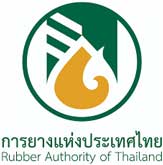
Thailand, the world’s biggest rubber producer and exporter, is currently promoting alternate uses of the prized material – the country has seen to the relocation of tyre-manufacturing from top consumer China, primarily because of poor car sales, and aims to expand its domestic use of natural rubber (NR).
Sunan Nuanphromsakul, Acting Governor of the Rubber Authority of Thailand (RAOT), said local processing of rubber was “crucial” to adding to its value: already, a local company has designed a rubber stand-like device tocatch marine sediment, stabilise newly planted mangroves and ultimately protectestuarine areas from coastal erosion. The root-guarding system contains about 40% NR, compared with the roughly 25% in tyres and less than 20% in rubberised roads.
Uthai Sornlaksap, president of a producers’ network that represents about 100,000 rubber-tree farmers, has estimated that nearly 1 million tonnes of NR could thus be used “to cover hundreds of kilometers of vulnerable Thai shorelines.”
In addition to this, discarded rubber material has been used in a novel cosmetics application – Professor Rapepun Wititsuwannakulat southern Thailand’s Prince of Songkla University (PSU), has found antioxidant properties in the plant that could stave off the physical effects of aging. Rapepun said they could process as much as 1 million litres of latex sap if sap-laced cosmetics and dietary supplements prove viable, “greatly boosting farmer’s income.”
Thai entrepreneurs Pondanai Somjaiman and Wuttichai Chalermwutanon have used the extract in a skin product designed to fight wrinkles and improve skin tone and complexion.About 200 litres of the rubber-sap byproduct are needed to make 1 kilogram (2.2 pounds) of the product which is sold by way of 100-mililitre bottles. Pondanai, who has heard stories of the impact of falling prices on the rubber industry, said, “More demand for new products means less reliance on foreign rubber markets.”
Thai rubber has traditionally been used in foreign tyres, gloves, and other manufactured products. Thailand typically exports about 80% of its NR as a lower-value commodity, for which futures prices have increased by 17% in 2019 compared to five years previously.
